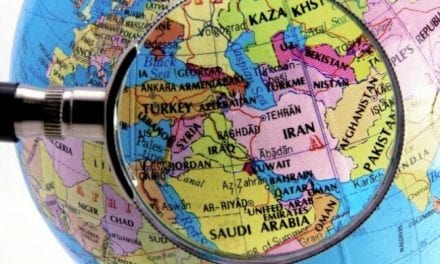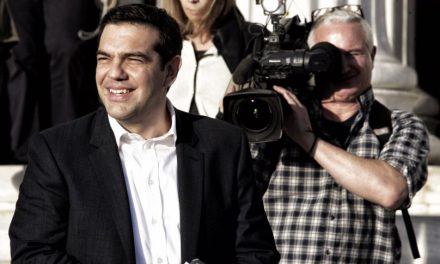Amid its economic catastrophe, Athens is still a city of trendy cafes, cocktail bars and glamorous, air-kissing young people.
As Greeks prepare to vote in Sunday’s general election, anti-austerity party Syriza is ahead in the polls and campaigning under the slogan, “Hope is on its way”.
The average wage has fallen to €600 (£450: $690) a month; half of all young people are unemployed and the economy is barely emerging from six years of recession. But Greeks remain determined to maintain their hold on normality.
“We don’t have much else,” they say, “we may as well enjoy our freddo cappuccinos.”
But despite the drinking, flirting and dating, since the onset of financial disaster, a fundamental change has taken place in Greek society.
Deejay Tommy, who works at the fashionable Opus bar in the south Athenian suburb of Glyfada, paints a sad picture of young Greeks waking up every day without a job.
 Deejay Tommy believes many young women no longer see relationships as a top priority
Deejay Tommy believes many young women no longer see relationships as a top priority “Things have lost a little bit of their romanticism,” he says.
“The crisis has forced love to become a secondary priority. There are other things to worry about. I see many women looking for someone who will have money to take them out, who’ll take them on holidays. I see this quite a lot and it saddens me.”
Down the road along the shoreline, the Bouzoukia clubs ring with live renditions of popular Greek love songs.
Crowds sipping on vodka throw the singers red carnations and sing along to lyrics of heartbreak and pain.
“We save up to come once every few months and we look forward to it,” says Katerina Fotopoulou, 30, at a table with her friends.
“We don’t have the money to do much any more. We’re always talking about future plans, going on holiday, but no-one ever does anything.”
Living at home, Katerina describes herself as an adult forced to live as a teenager, her life put on hold.
 Going out has become a luxury but Greeks are trying to maintain their old lives
Going out has become a luxury but Greeks are trying to maintain their old livesCompared with other Europeans, Greeks are still fairly traditional.
For many young women, it is awkward bringing a boyfriend through the front door to meet the parents.
And that poses a problem, considering the high numbers unable to afford a place of their own.
“Relationships are complicated these days,” says Katerina. “No-one is even thinking about getting married or having children.”
Indeed, Greece’s population is shrinking at an increasing pace according to data released by the Hellenic Statistical Authority (Elstat).
Since Greece first signed its EU-IMF bailout agreement the number of births has declined rapidly. In 2010 there were 114,766 live births, and by 2013 that number had declined by almost 20,000 (94,134).
Obstetrician Leonidas Papadopoulos says miscarriages at the Leto maternity hospital have doubled over the past year.
“Maybe it’s down to stress,” he says. “There is no proof, but you can see it in the eyes of the people, there is stress and fear for the future.”
He describes how a woman he had been treating with IVF came to him one day crying because she was pregnant.
She had lost her job and demanded an abortion. But he felt he could not perform the procedure.
“Soon,” says Dr Papadopoulos, “the population will be halved and there won’t be any young people to work and pay for the pensions of the elderly. All the social problems will rise up in front of us.”
Double life
Some who have children and are struggling to support them, have turned to sex work to put food on the table.
Further north, in Larissa, Soula Alevridou, who owns a legal brothel, says the number of married women coming to her looking for work has doubled in the last five years.
“They plead and plead but as a legal brothel we cannot employ married women,” she says. “It’s illegal. So eventually they end up as prostitutes on the streets.”
 Graffiti on a wall in Athens reads: “Love or nothing”
Graffiti on a wall in Athens reads: “Love or nothing”A doctor, Georgia, explains how she also works as an escort in the sex industry to support her family.
Her private clinic currently treats three patients a week but the peak summer season in the sex industry enables her to keep up with the rental payments on her family’s home and the healthcare bills for her elderly parents.
“I live a double life and only I can know about it,” she says. “I have applied for jobs in medicine abroad and wait every day in hope of a reply.”
For journalist Elini Lazarou, having a baby was not something she was prepared to put on hold while waiting for a change in the political or economic climate.
“Love in the time of crisis can function as a painkiller with which someone can forget the problems they’re facing or as a source from which someone can draw strength, energy and optimism,” she says.
On a wall in downtown Athens, a simple message is daubed that reads “Love or nothing”.
It strikes a defiant tone amid the blighted lives hidden behind pure economics.



















